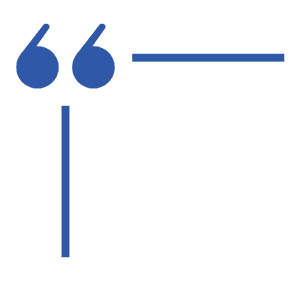7 min read

Written by admin
The healthcare industry, a cornerstone of societal well-being, finds itself at the intersection of transformative changes. Technological innovations, shifting patient expectations, and a renewed global focus on health have collectively shaped a dynamic landscape. As we stand on the cusp of 2024, a deeper exploration of the talent trends influencing the healthcare workforce is imperative.
This article aims to dissect key dynamics propelling the evolution of healthcare talent, offering insights into the future of the industry.
Remote Work and Telehealth is Adapting to a New Paradigm
Growing Acceptance and Integration of Remote Work
The impact of the global pandemic has reshaped traditional attitudes towards remote work in healthcare. Professionals are now embracing flexible work arrangements, recognizing the positive influence on work-life balance. However, larger companies are now expecting in-office days, so while there is still a focus on remote work hybrid is the current expectation for many providers – also known as ‘Mandatory Mondays’.
The Role of Telehealth in Redefining Job Roles and Skill Sets
The surge in demand for telehealth services has not only altered the patient experience, but has also redefined the skill sets required by healthcare professionals. The integration of technology necessitates continuous learning to maintain effective telehealth practices. Online Doctor Consultations user penetration is expected to grow to 1.51% in 2024 and is then expected to hit 1.63% by 2028.

Demand for Specialized Skills: Embracing the Technological Frontier
Emerging Trends in Healthcare Technologies
The integration of artificial intelligence, machine learning, and data analytics is revolutionizing healthcare. These technological advancements impact diagnostics, treatment methodologies, and ultimately contribute to improved patient outcomes.
Increasing Demand for Professionals with Expertise in Specific Domains
To meet the demands of evolving healthcare technologies, there is a growing need for professionals with specialized expertise. Continuous learning becomes paramount as healthcare professionals navigate this transformative landscape.
The Role of Continuous Learning and Upskilling
Strategies for professionals to stay relevant in the face of rapid technological changes are essential. Fostering a culture of lifelong learning within healthcare organizations becomes imperative for sustained excellence. Additionally, the National Center for Health Workforce Analysis (NCHWA) has theorized in over the next 15 years there will be thousands of shortages in healthcare workers, so upskilling is in demand for the upcoming shortages.

We know the pulse of the healthcare industry.
Top healthcare talent on demand
Wellness and Mental Health Support for Workers
Recognition of Healthcare Professionals’ Mental Health Needs
The healthcare industry’s stressors have a profound impact on the mental health of professionals. Recognizing and addressing these needs are critical steps towards fostering a healthy and supportive work environment.
Implementation of Wellness Programs and Mental Health Support Services
Organizations bear the responsibility of implementing wellness programs that go beyond physical health. Holistic approaches that prioritize mental health support contribute to a workforce that is resilient and dedicated.
The Role of a Supportive Work Environment in Retaining Top Talent
A supportive culture directly influences job satisfaction and retention. Strategies aimed at creating a workplace that prioritizes well-being are integral to retaining top talent in the healthcare sector.

With many regions facing workforce shortages, the healthcare industry is increasingly leveraging international talent. Navigating the regulatory challenges of global recruitment is a key consideration.
Bridging Borders with Global Talent Acquisition
Cross-Border Recruitment Trends in Healthcare
With workforce shortages in many regions, the healthcare industry is increasingly leveraging international talent. Navigating the regulatory challenges of global recruitment is a key consideration.
Challenges and Opportunities of Hiring Internationally
Cultural considerations play a significant role in global talent acquisition. Strategies for effective onboarding and integration are crucial for overcoming the challenges associated with hiring internationally.
Strategies for Fostering a Global Talent Pool in Healthcare Organizations
Building diverse and culturally competent teams is a strategic imperative for healthcare organizations. Nurturing a global mindset within organizational culture promotes collaboration and excellence.
Collaboration Between Healthcare and Tech Industries
Increasing Partnerships Between Healthcare and Tech Companies
The synergy between healthcare and technology is resulting in transformative innovations. Collaborative efforts are shaping the future of patient care and healthcare operations.
Impact on Job Roles and Skill Requirements in the Healthcare Sector
Emerging roles at the intersection of healthcare and technology require professionals to adapt and acquire new skills. Preparing the workforce for the digital healthcare future is essential for continued excellence.
Final Thoughts
As we stand at the threshold of 2024, healthcare professionals, organizations, and policymakers must heed these talent trends. Fostering adaptability, implementing telehealth, and prioritizing well-being are not mere suggestions but imperatives for the healthcare industry. Through collective effort and strategic initiatives, the healthcare workforce can be not only resilient, but also at the forefront of innovation, ensuring the continued delivery of exceptional care to communities worldwide.
Related articles

Get your healthcare workforce strategy prepared for 2023
Talent ManagementGet your healthcare workforce strategy prepared for 20238 min readThe healthcare workforce has changed since the pandemic - no one can deny that. And, as a result, healthcare leaders need to rethink their workforce strategy and prepare for the...

We Need More Women Leaders in Healthcare
70% of healthcare workers are women, however, they make up only 25% of healthcare leadership roles. Additionally, it takes women 3 to 5 years longer than men to progress to CEO positions. These statistics are glaringly disproportionate and highlight a clear issue in...
Talent4Health awarded Health Care Staffing Services (HCSS) Accreditation from The Joint Commission
Wilmington -USA—October 6th, 2021– Talent4Health has earned The Joint Commission’s Gold Seal of Approval® for Health Care Staffing Services (HCSS) Accreditation by demonstrating continuous compliance with its performance standards. The Gold Seal is a symbol of quality...

